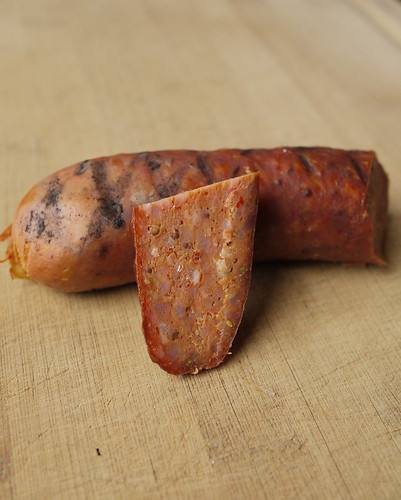
This isn't a story about Korean food. This about catching one of 2012's hottest food trends, Kimchee (Kimchi, 김치). Yes, as reported in Australia and Canada, America will soon be replacing kraut and slaw with the more exotic fermented cabbage to garnish our favorite 'Dude Foods.' Huh. Kimchee came on to my cultural crossing flavor radar last year when the chef, at our humble NW Indiana Brewpub, swapped out the red slaw on our bbq sammie with housemade spicy goodness.
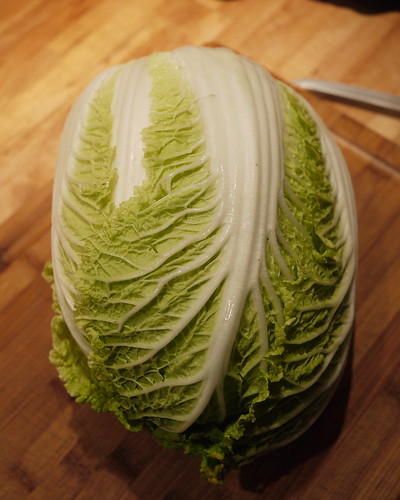
Up to that point I thought that making kimchee was a long process taking months or years involving clay jars and holes in the ground. At the restaurant we made it in 4 days. I started making it at home and I put it on everything.

Kimchee on my pizza
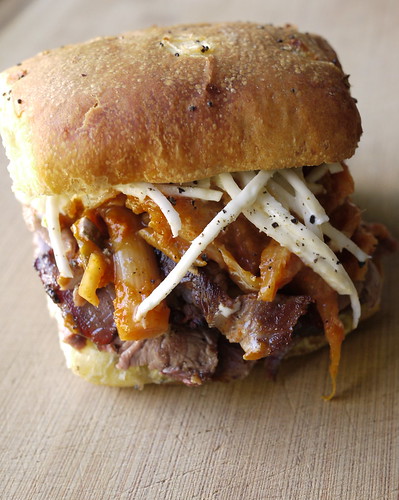
Kimchee on my schwarma
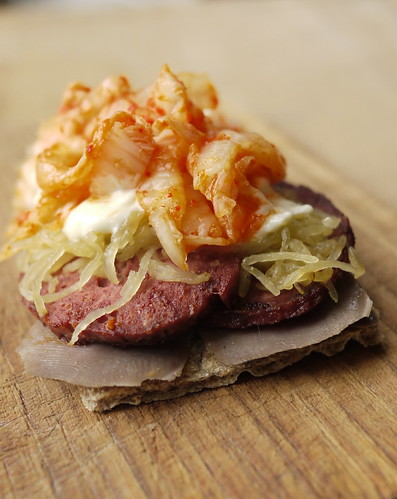
Kimchee on my smörgås.
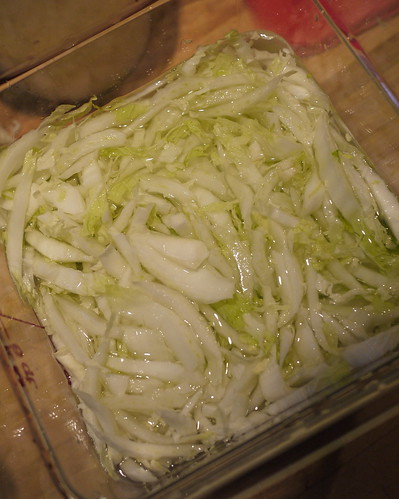
For the kimchee we were making at work, we started by putting thinly sliced Nappa cabbage in a 5% brine, and let it sit on the counter for 24 hours. Then we made what Dave Chang in Lucky Peach #2 calls "The dressing": A puree of red Thai chiles, ginger, garlic, honey and fish sauce. After draining the brined cabbage we tossed it with the dressing, then let it sit for 4 days.
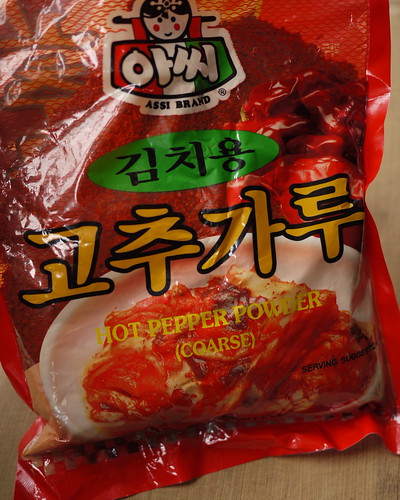
Most recipes call for ground chili flakes called gochugaru (kochukaru, 고추가루). I picked-up a bag to see if it would make any difference for my batches at home. Tasting this particular sample (pictured above) was pretty unremarkable, a cross between crushed red pepper and paprika. Also not spicy at all. While I haven't tried any other brands, and I'm sure there are better, I think half sharp paprika is an spot-on substitute.

I used a combination of both in my batches.

So there are many places you can find a recipe for kimchee, in an effort to stay ahead of the trend, how about a sausage with the dressing on the inside?
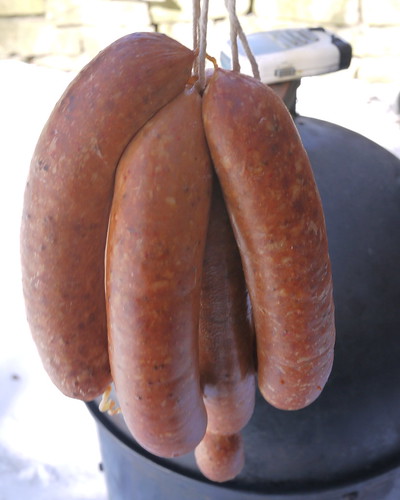
Hello hot link.
Kimchee Hot Link
per 1000g Pork shoulder, cubed and chilled
300 ml cabbage jus
20 ml fish sauce
15 g salt
40 g fresh ginger minced
24 g garlic minced
20 g gochugaru
6 g half sharp paprika
10 g whole brown mustard seeds
20g milk powder
For the cabbage jus: Cabbage has a particular sour/peppery taste, that I wanted in this sausage. Take the whites from a head of bok choy and puree it in the blender, it's ok to add a little water to get it going. Strain the resulting mash through muslin. After cleaning out the blender, add in only 100ml of the jus, salt, fish sauce, garlic, ginger and spices and give the blender a whirl to make a smooth dressing.
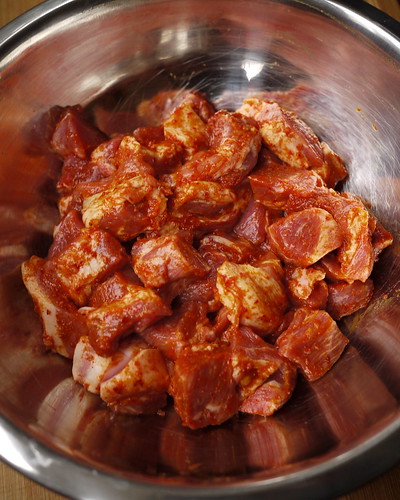
Toss the pork with the dressing and allow to marinate for a few hours.
Grind the pork mixture into a mixing bowl, then beat in the remaining jus and milk powder. Continue to mix to achieve a nice paste. Stuff into prepared hog casings. Try to let the links hang for a day before cooking.
What to do with a hot link, I could just put it on a bun, but wait there's more.

While I couldn't find any corroborating references that this is actually made in Korea, but I found this interesting shape on the website My Fabulous Recipes.

Then I did a steamed one, and then with the help from Asian Dumplings, by Andrea Nguyen, I went dumpling crazy.
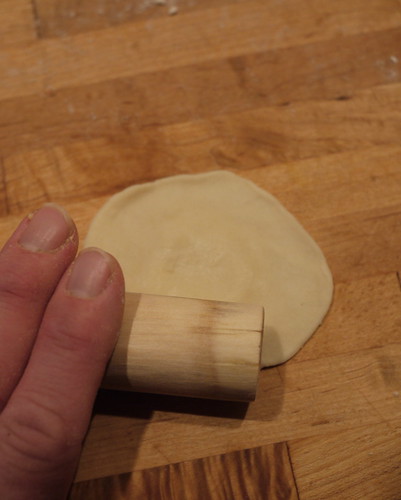
I made a little rolling pin from a dowel.
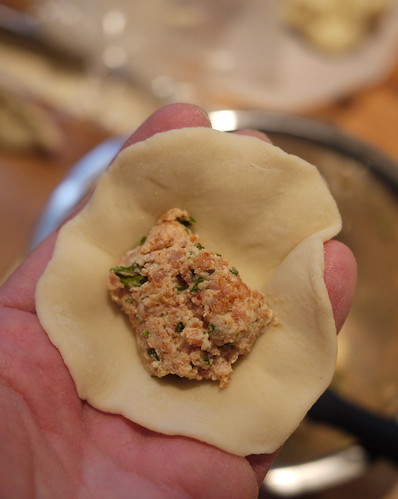
I cut the hot link mixture with some tofu and formed some dumplings
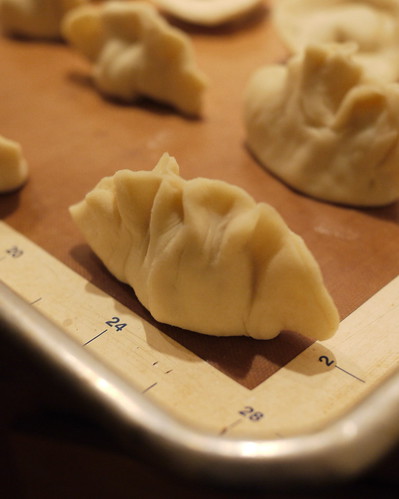

Steamed, jjinmandu (찐만두)
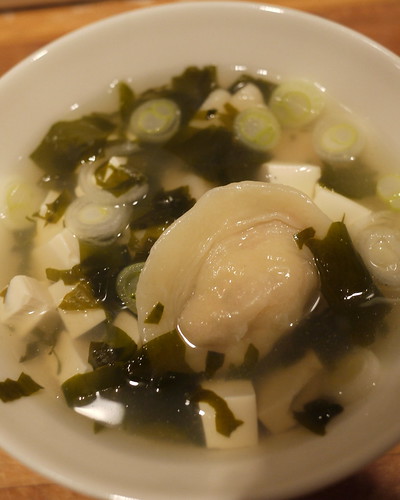
Boiled, mulmandu (물만두)
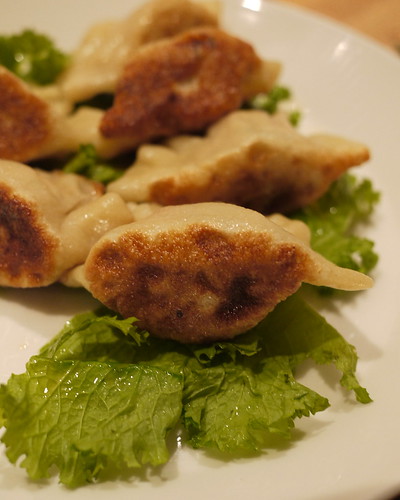
Fried, gunmandu (군만두). These ended up looking like gyōza (餃子). I think they are supposed to be browned on two sides, I'm having trouble reading my translation.
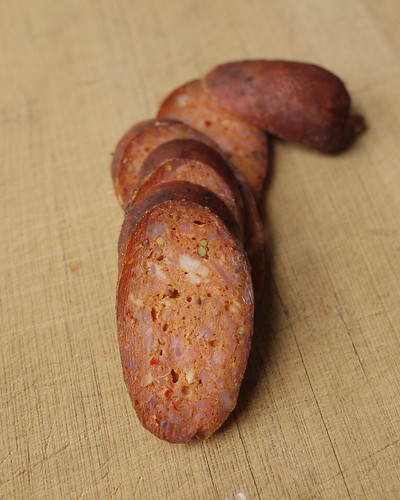
Anyway you slice it, get ahead of the trend and make kimchee hot links today!
Cheers.
Further Reading:
Kimchee's new chapter
Korea's traditional condiment blurring culinary borders by Bill Daley, The Chicago Tribune, 21 September 2011
"Paechu and White Kimchi" by Dave Chang, Lucky Peach Issue 2 Fall/Winter 2011
The kimchi chronicles : Korean cooking for an American kitchen, by Vongerichten
Asian dumplings : mastering gyōza, spring rolls, samosas, and more, by Nguyen
Also check out Nguyen's website, Asian Dumpling Tips
Korean translations via @KoreanFood and Wikipedia
28 February, 2012
Kimchee hot link
Subscribe to:
Post Comments (Atom)


No comments:
Post a Comment